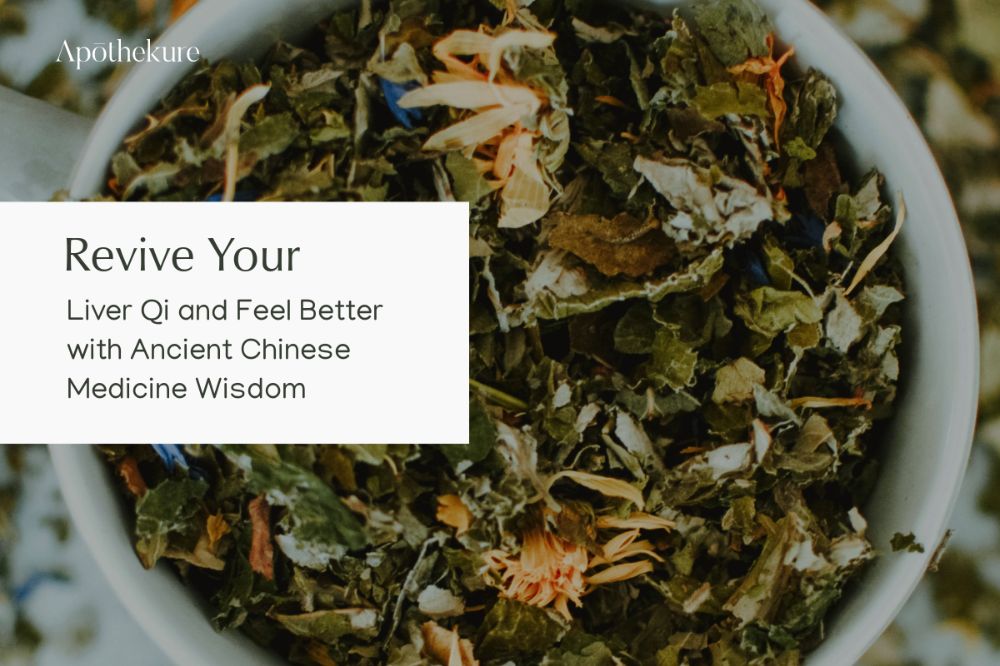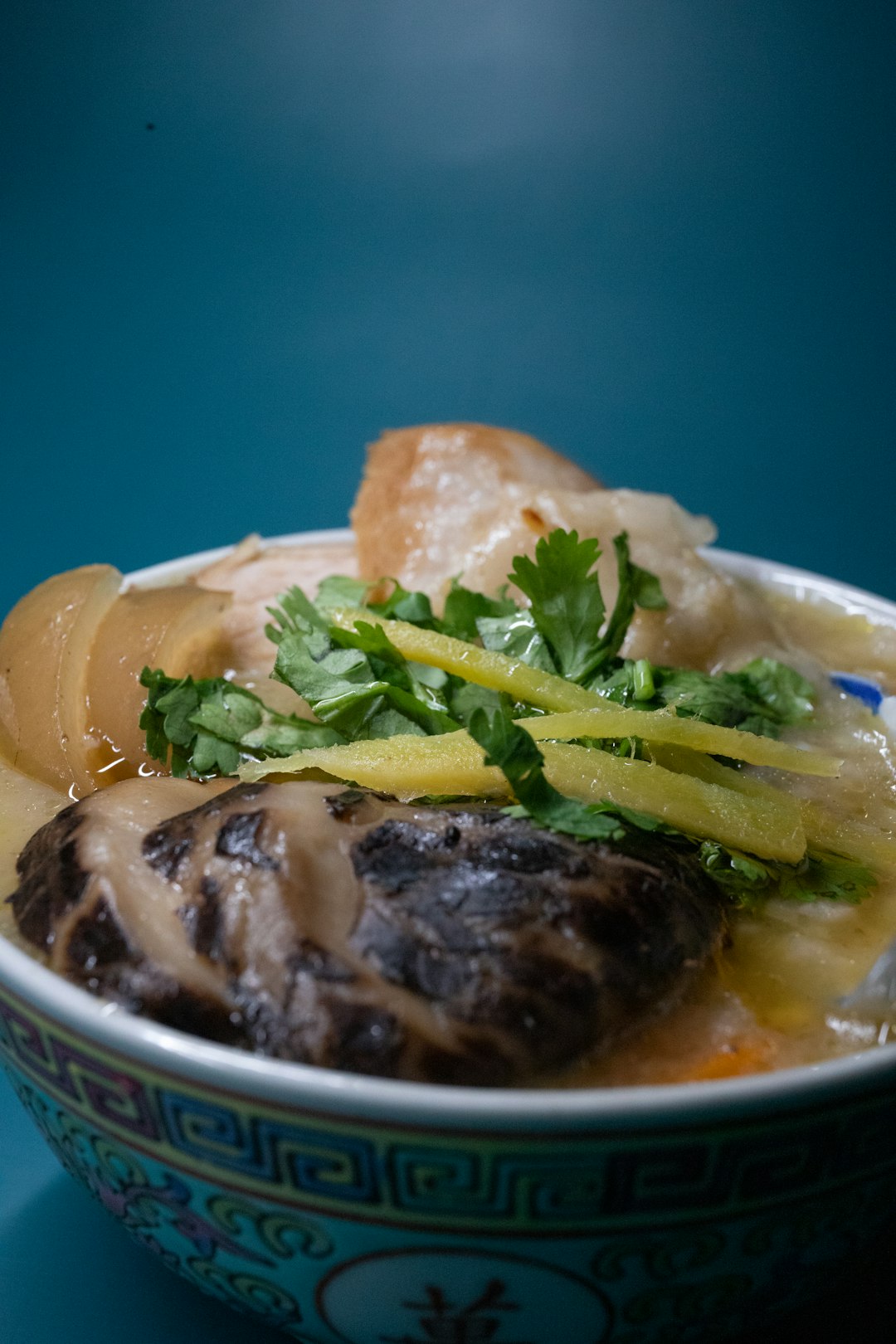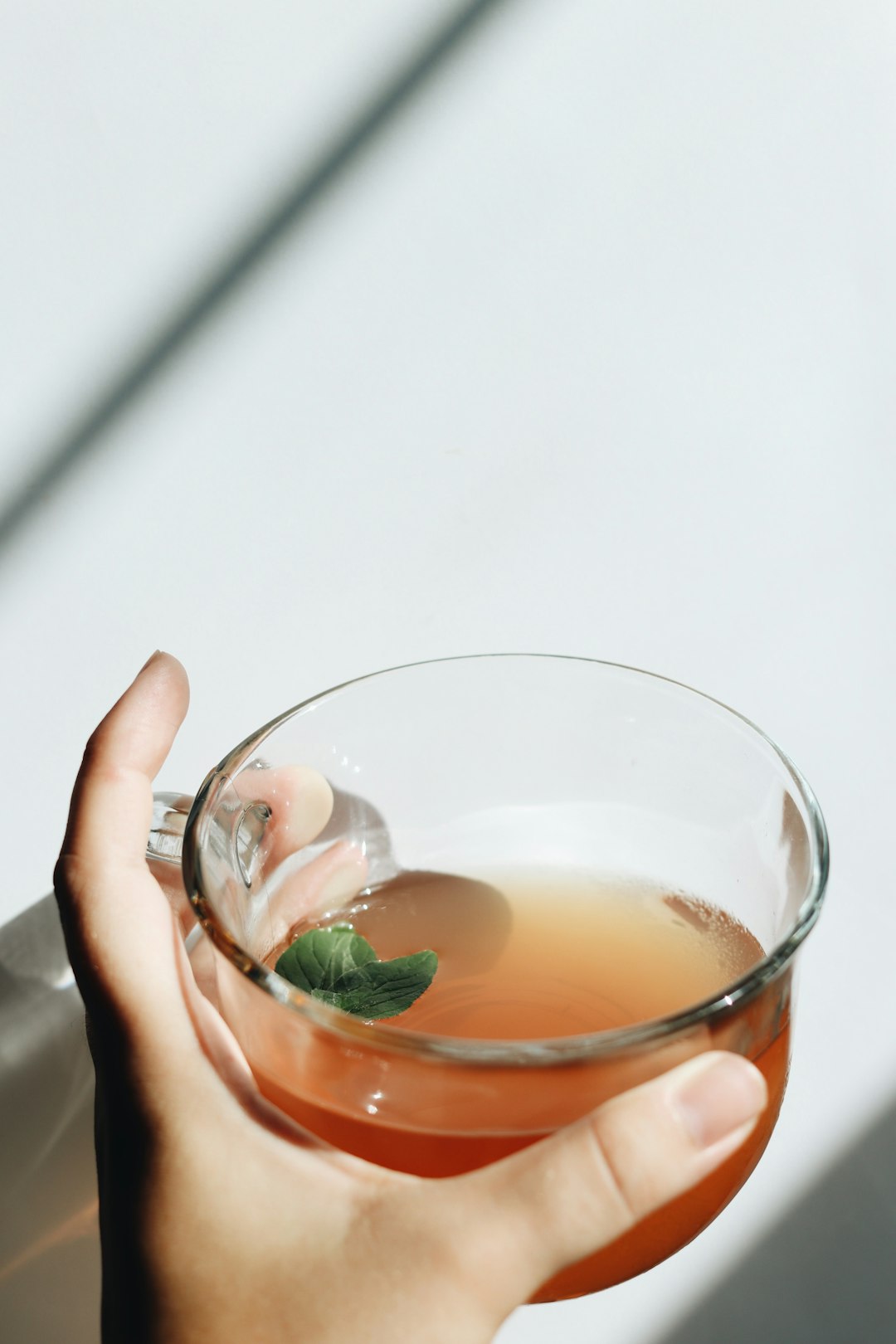Nourish Liver Qi Stagnation with Chinese Medicine: Diet, Teas, and Recipes

Do you often feel overwhelmed and drained? You may be experiencing Liver Qi Stagnation. This common imbalance can cause irritability, fatigue, digestive problems, fluctuating emotions, and more. But don't fret—there are natural ways to nourish your liver and help you regain a sense of equilibrium in your life.
Let's explore how making dietary and lifestyle changes can support your body and bring it back into alignment. With just a few tweaks, you can start feeling like yourself again.
Understanding The Meaning of Liver Qi Stagnation in Chinese Medicine
In traditional Chinese medicine ( TCM ), a build-up of stress stemming from acute or chronic sources can lead to liver qi stagnation — and, as a result, an overall feeling of tension across the entirety of the body. When left untreated, this state may persist indefinitely.
Dr. Antonika Chanel offers a pretty thorough explanation here:
Fortunately, there are solutions available to help reset the nervous system and restore balance in your life. In addition to acupuncture, you can take steps to change your diet, consumer different supportive tea into your daily routine, and take herbal supplements. We'll go into those details next.
Switch Up Your Diet
Eating nourishing meals that are easy to digest can boost your liver Qi. Opt for warm and cooked dishes such as soups, stews, cooked greens, and root vegetables to get optimal benefits – and don't forget those bitter, sweet, and sour flavors to promote the flow of liver Qi. Add some extra zing into your meals and drinks with a splash of lemon juice or apple cider vinegar!
Include bitter foods, like bitter melon or dandelion greens, can help stimulate the liver. Eating warming, high fiber foods, like sweet potatoes and squash, can also help support liver health.
At the same time, steer clear of foods that are cold, raw, too spicy, fried or greasy. This can also help to reduce stagnation.
Avoid processed foods and reducing your caffeine consumption can help reduce stagnation and nourish the liver. Recipes that combine warming, anti-inflammatory ingredients like ginger, garlic, turmeric, and cinnamon can be particularly helpful. With the right dietary modifications, you can start to feel more balanced and energized in no time.
Teas to Support Liver Qi Stagnation
Like we mentioned, an important part of improving liver Qi stagnation is diet. To prevent and help treat this imbalance, it is best to avoid processed foods, sugar, rich dairy, and deep-fried foods, as these can further disrupt your Qi. Instead, opt for foods that help to nourish and support your liver, such as green leafy vegetables, bitter herbs, and fruits. Additionally, consider reducing your caffeine intake, as this stimulating substance can worsen Qi stagnation.
In addition to dietary shifts, consider adding tea to your daily routine. Many herbs and medicinal teas have been used for centuries to support healthy Qi flow and nourish the liver. Consider drinking a cup of dandelion root tea, ginger tea, chamomile tea, mint, hibiscus or green tea each day. These teas nourish the liver and can help to relieve stress and tension in the body. Sipping warm herbal teas can also help to relax your body, allowing Qi to flow more freely.
Herbs like milk thistle, and licorice root can also be beneficial.
Nourishing Recipes to Support Qi to Flow Smoothly
There are a variety of nourishing recipes that you can incorporate into your diet to help support your liver Qi stagnation. Try dishes like soups and stews that are made with warming spices and herbs, such as ginger, turmeric, rosemary, sage, and garlic. Add recipes that include ingredients like beets, artichokes, and asparagus. Here are a few others recipes that can help:
Ginger-infused Garlic Tea
Ingredients
- 2 teaspoons of minced ginger (dry or fresh)
- 4 teaspoons of brown sugar
- 2 garlic cloves, peeled and crushed
- 2 cups of water
Directions:
- Simmer two garlic cloves, finely minced ginger, and brown sugar in two cups of water for 15 minutes over a low flame.
- Enjoy the hot brew to warm your senses – sip throughout the day.
Bonus Tip: For an extra boost, nibble on the garlic and ginger pieces as you sip. Let this warm elixir chase away stress and restore balance to your day.
Rice Noodle Soup with Shiitake Mushrooms
Ingredients:
-
1 cup uncooked white rice
-
1 can (14.5 ounces) chicken broth
-
2 cups water
-
1/2 teaspoon salt
-
1/4 teaspoon black pepper
-
1/2 pound Shiitake mushrooms, sliced
-
1/4 cup chopped green onions
-
1 tablespoon soy sauce
-
1 tablespoon vegetable oil
Directions:
-
Cook the rice according to package directions.
-
In a large pot, combine the chicken broth, water, salt, and pepper. Add the cooked rice and mushrooms.
-
Bring to a boil over high heat. Reduce the heat to low and simmer for 20 minutes.
-
In a small bowl, combine the soy sauce and vegetable oil. Pour the mixture into a serving bowl and top with the green onions.
-
Barley Soup
- Ingredients:
-
-
-
1 cup barley
-
4 cups chicken or vegetable broth
-
1 onion, chopped
-
3 cloves garlic, minced
-
1 carrot, peeled and chopped
-
1 celery stalk, chopped
-
1 bay leaf
-
1 teaspoon dried thyme
-
Salt and black pepper, to taste
-
Parsley or cilantro, for garnish
Directions:
- In a large pot, combine the barley, broth, onion, garlic, carrot, celery stalk, bay leaf and thyme. Season with salt and black pepper. Bring to a boil over high heat. Reduce the heat to low and simmer for 30 minutes.
- Remove the bay leaf and garnish with parsley or cilantro before serving.
The Power of Mindfulness for Liver Qi Stagnation

When dealing with liver Qi stagnation, mindfulness can be a great asset to have. It’s able to stop the vicious cycle of stress and rumination that can come with this illness. Lowering any physical and emotional tension your body can accumulate is an important part of healing. Even if it's just a few moments, connecting with the present moment and becoming aware of what your body requires can make all the difference. By taking the time to notice your body's sensations, you can start to develop a sense of understanding and compassion for yourself and your body.
Tips for Making These Changes Stick
Making lasting changes to your diet and lifestyle can be a challenge, especially if you've been dealing with Qi stagnation for some time. To make it easier, here are a few essential tips:
Start by making small, intentional changes. Going all-out and attempting to entirely overhaul your diet or lifestyle right off the bat can leave you feeling overwhelmed and make it more difficult to maintain the new habits over the long run. Instead, begin by introducing minor shifts into your meals or habits, like incorporating more cooked vegetables or drinking one cup of detoxifying tea per day. Once you're comfortable with these small steps, you can then progressively expand the amount and intensity of your dietary and lifestyle alterations.
Keep a journal. Documenting how you feel, what you do and what you eat can help you notice any negative behaviors and make alterations when needed. What's more, this method of reflection can help provide even more motivation to stay on track. Writing down your successes and challenges also offer plenty of inspiration!
By taking small steps and being mindful of your progress, you can make lasting changes and experience the benefits of a balanced and harmonious life. With dedication and intentional effort, you can overcome your liver Qi stagnation and improve your overall health and well-being.
Reference:
- Crowley CG, Kapitula L, Munk D. Mindfulness, happiness, and anxiety in a sample of college students before and after taking a meditation course. Journal of American College Health. Published 2020. Accessed February 12, 2023.
Get your daily dose of wellness delivered straight to your inbox. Sign up now for our newsletter.
Disclaimer:
These statements have not been evaluated by the Food and Drug Administration. This product is not intended to diagnose, treat, cure, or prevent any disease.
The content is purely informative and educational and should not be construed as medical advice. Any opinion expressed should not be treated as a substitute for professional medical advice. By using this website, you accept our Terms & Conditions and Privacy Policy. We cannot guarantee the accuracy of the information presented at this site. This article is not intended to be used as a substitute for the diagnosis and treatment of any health problem or to prescribe any medication or other treatment. You should consult with your health care provider before starting any diet, exercise, or supplementation program, before taking any medication, or if you have or suspect you might have a health problem.

